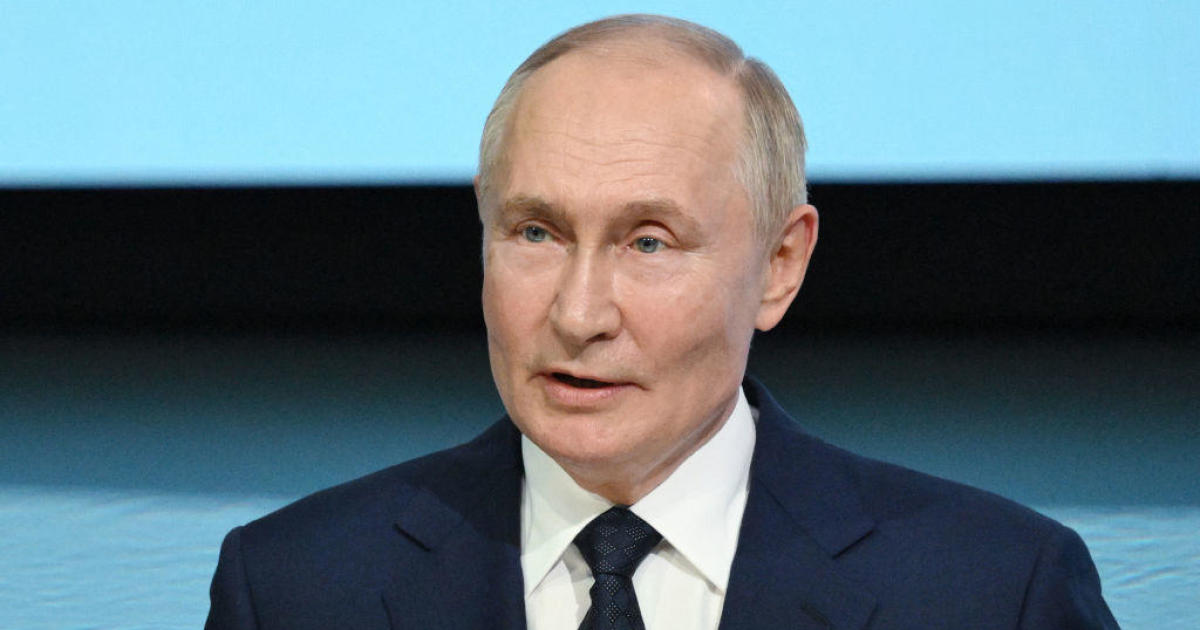Russian President Vladimir Putin issued a stark warning on Thursday, cautioning the U.S. and its NATO allies against allowing Ukraine to use Western-supplied long-range missiles to target Russia. Putin emphasized that such a decision would be seen as direct NATO involvement in the ongoing conflict, fundamentally altering the nature of the war.
Speaking in response to a question, Putin highlighted the critical role of military personnel from NATO countries in assigning flight paths for these missile systems. He clarified that Ukrainian servicemen do not have the authority to enter these assignments, making it a decision for NATO countries to determine their direct participation in the conflict.
“If this decision is made, it will signify the direct involvement of NATO countries, the United States, and European nations in the war in Ukraine,” Putin emphasized. The Russian leader underscored the gravity of such a development, indicating that it would have significant implications for the conflict and prompt Russia to make corresponding decisions in response to the threats posed.
Ukrainian President Volodymyr Zelenskyy has been vocal in seeking approval from Western allies to deploy long-range missiles supplied by the U.S. or Europe to strike deep into Russian territory. The missiles in question include U.S. ATACMS and British Storm Shadows, weapons that could potentially alter the dynamics of the conflict in Ukraine.
President Biden is expected to address this issue in a meeting with U.K. Prime Minister Keir Starmer in Washington, D.C., later on Friday. The decision by the U.S. and Britain to authorize such strikes would signify direct involvement in the conflict against Russia, according to Putin. He warned that Russia would respond accordingly to the new threats posed by this escalation.
Following Putin’s statement, questions arose about the reaction among Western powers to his warnings. Kremlin spokesperson Dmitry Peskov emphasized the clarity and unambiguous nature of Putin’s statement, underscoring that there is no room for misinterpretation. Peskov expressed confidence that the message had been effectively conveyed to its intended recipients.
The potential escalation of the conflict in Ukraine has raised concerns about the broader implications for global security and stability. The involvement of NATO countries, particularly the U.S. and European allies, in direct military engagement with Russia could have far-reaching consequences. It could not only intensify the conflict in Ukraine but also strain diplomatic relations between major world powers.
The delicate balance of power in the region hangs in the balance as leaders navigate the complexities of the situation. The conflict in Ukraine has already resulted in significant human suffering and displacement, with both sides engaged in fierce fighting for control of key territories. The introduction of advanced weaponry could further exacerbate the violence and prolong the conflict, leading to more casualties and destruction.
The geopolitical ramifications of NATO’s potential entry into the conflict are immense, with implications for the broader security landscape in Europe and beyond. The risk of a direct confrontation between NATO forces and Russian military units raises the specter of a broader regional conflict with unpredictable consequences. The need for de-escalation and diplomatic solutions becomes increasingly urgent as tensions continue to rise.
As world leaders deliberate on their next steps, the fate of Ukraine hangs in the balance. The country has been a focal point of geopolitical rivalries, caught in the crossfire of competing interests and power struggles. The Ukrainian people have borne the brunt of the conflict, enduring hardship and uncertainty as they strive for peace and stability in their homeland.
The international community must act decisively to prevent further escalation and seek a peaceful resolution to the crisis in Ukraine. Dialogue and diplomacy must prevail over military confrontation, as the consequences of a full-scale war are too dire to contemplate. The fate of millions of people and the stability of the region are at stake, underscoring the urgency of finding a peaceful solution to the conflict.
In the midst of heightened tensions and escalating rhetoric, the need for restraint and diplomacy cannot be overstated. The stakes are too high for miscalculations or reckless actions that could lead to a catastrophic outcome. It is imperative for all parties involved to prioritize dialogue and negotiation to de-escalate the situation and avoid a further descent into conflict and chaos.
The world is watching closely as events unfold in Ukraine, with the hope that cooler heads will prevail and that a peaceful resolution to the crisis can be achieved. The fate of the region and the prospects for stability and security hang in the balance, requiring a concerted international effort to avert a catastrophic outcome. The time for decisive action and diplomatic engagement is now, as the future of Ukraine and the broader security landscape depends on the choices made in the coming days and weeks.









